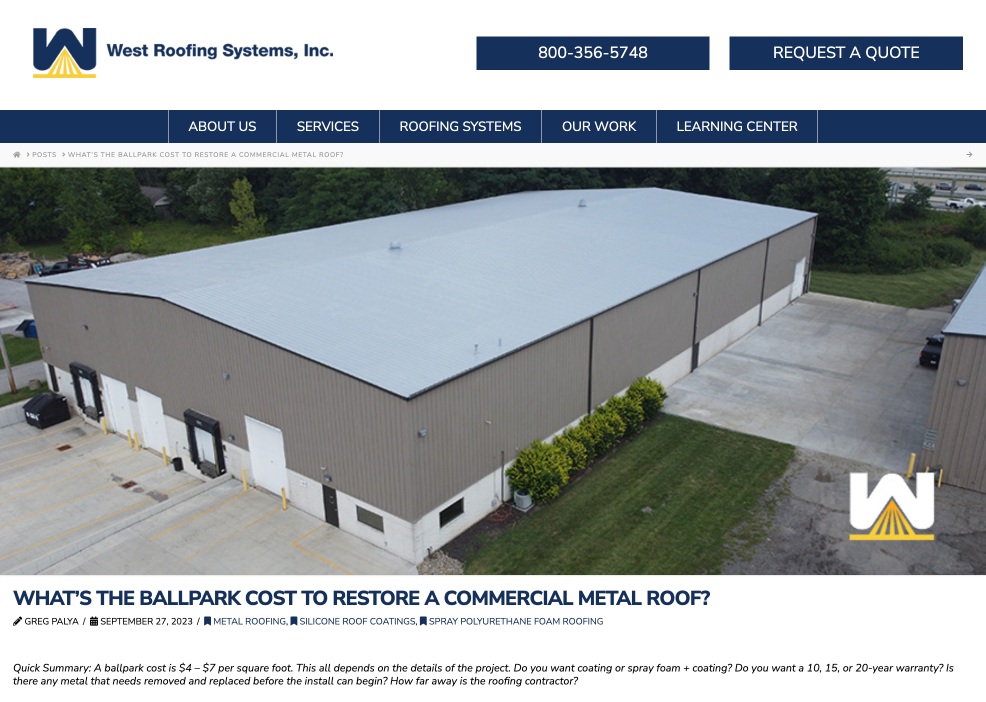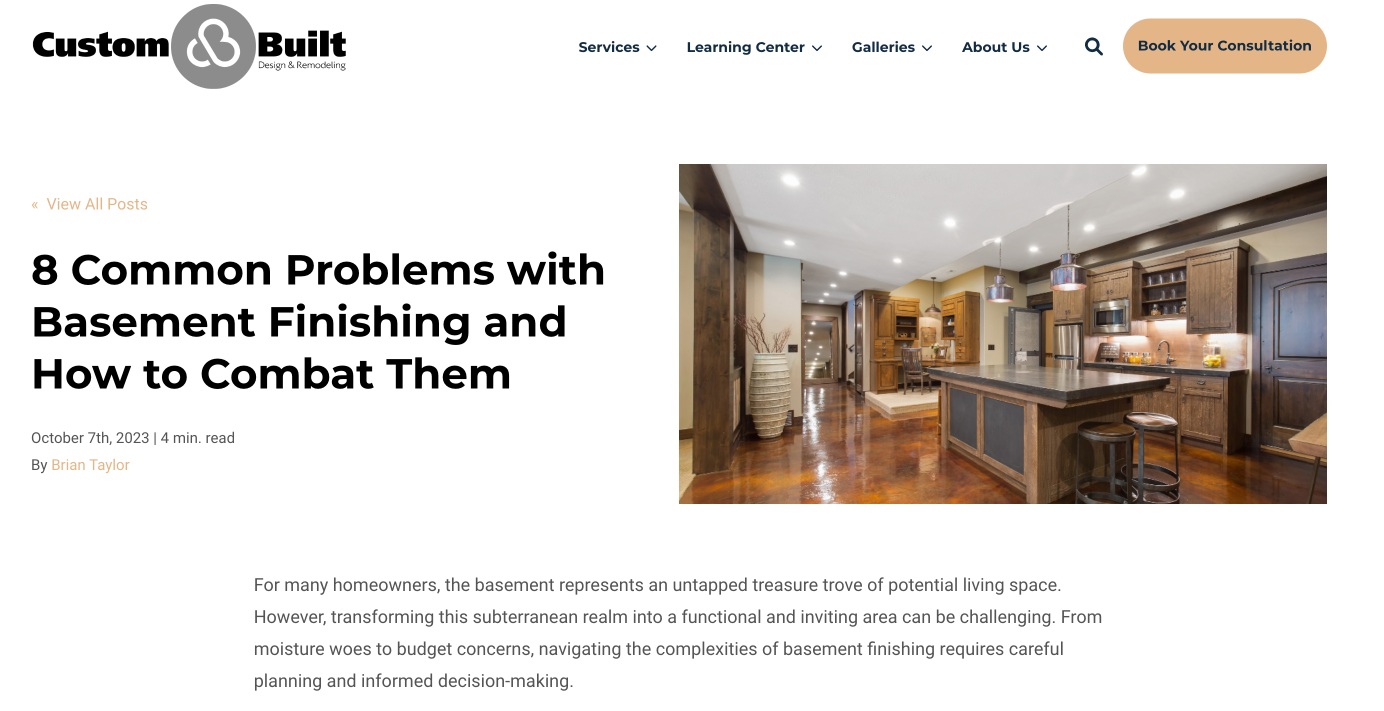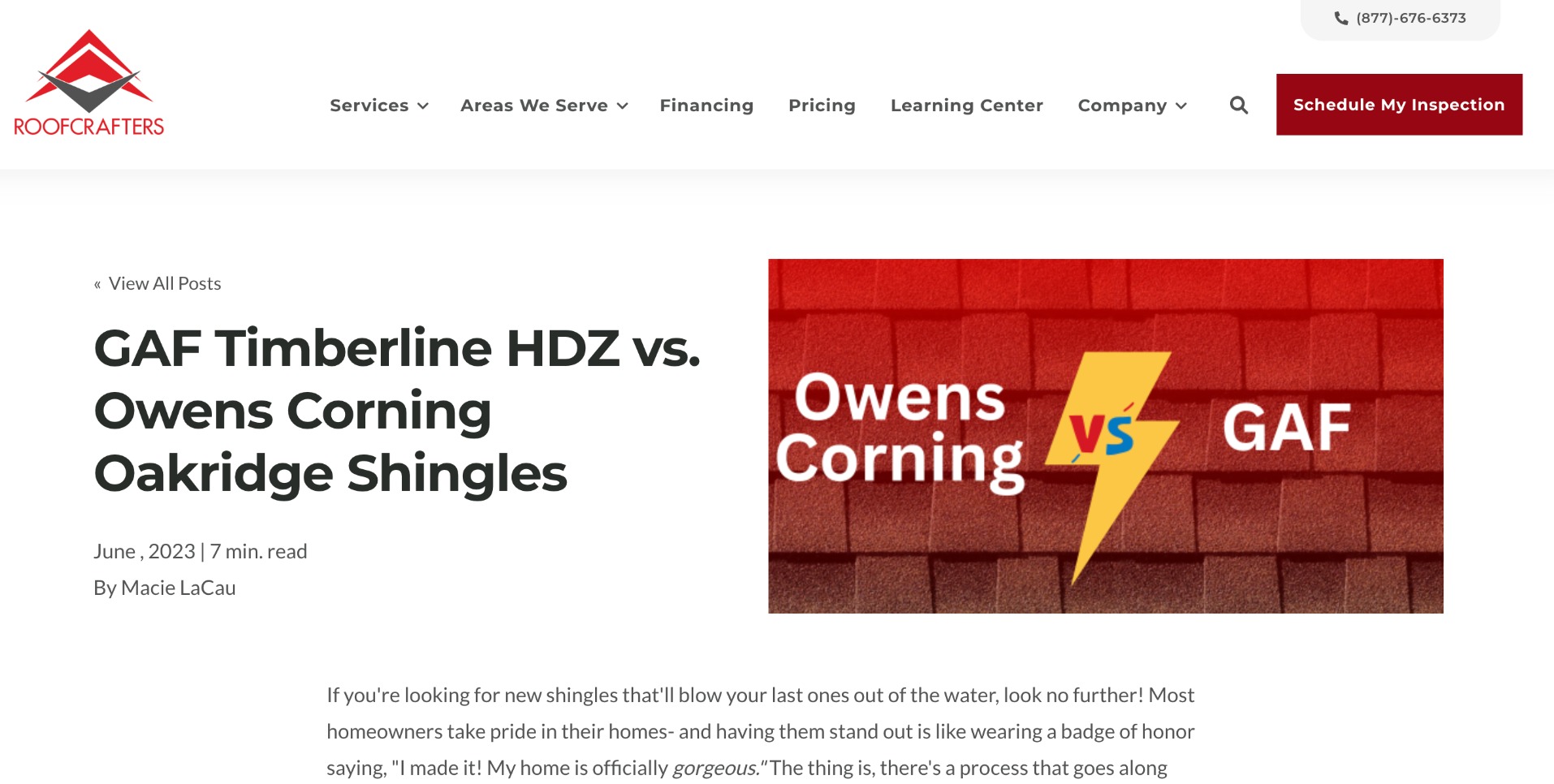Topics:
Content Marketing Content and Inbound Marketing 101 Getting Started with They Ask, You AnswerSubscribe now and get the latest podcast releases delivered straight to your inbox.
DIY Marketing for Your Home Improvement Business: Building Trust and Attracting Customers

By John Becker
Jul 18, 2024

Finding new customers for your construction businesses can feel like a full-time job. You’re already doing the work, bidding on projects, and visiting job sites, along with a dozen other tasks that come up each week. And at the same time, you've got to grow your business.
How?
Word-of-mouth referrals are great, but in an increasingly crowded marketplace, you’re always left wondering if it’s enough.
You could work with a marketing agency, but paying for mailers, newspaper ads, or radio spots doesn’t provide much of a return on investment — and it’s always hard to measure. What's more, those "traditional" marketing streams can make you seem interchangeable with a dozen other companies.
So you’re stuck.
How do you get customers to trust you with their project — without wasting money on approaches that seem outdated and inefficient?
The key is reimagining your approach to marketing to suit the digital age. You can bring new customers to your business without a high-priced ad spend.
Today, marketing doesn’t have to be a confusing or expensive endeavor. Instead of blasting your message out and hoping the right people hear you, you can actually have your customers come to you — as long as you focus on producing educational content.
In this article, I’ll explain:
- An overview of DIY digital marketing
- The information your buyers are looking for
- Digital marketing examples from construction businesses just like yours
You’ll come away with a fundamental understanding of how modern digital marketing strategies can attract website visitors who can enter your sales funnel as good-fit prospects.
Let’s dive in.
Digital marketing: An overview
At the most basic level, digital marketing is simple. It starts off with a basic premise: The internet has changed the way people buy. When customers are thinking about making a purchase, whatever it is, they start by gathering information. They do this with a computer and a search engine or an AI-powered chatbot. Or, they may pose a question to social media or YouTube.
Studies show that roughly 93% of all purchases start with some kind of internet search.
Customers begin by typing in questions and looking for answers. They keep reading and they keep learning, all as they get closer and closer to making a purchase.
If they read a few articles or watch a few videos from the same source, that source becomes an information source they recognize and trust.
Right now, your potential customers are sitting down to ask a question:
- How do I finance a home improvement loan?
- What are the benefits of burying service wires?
- Should I use fiber cement shingles for my exterior?
- How much does a radon safety system cost to install?
Answering questions like these is the first step to establishing trust within your marketplace.
Now, if you're using traditional marketing tactics like a radio spot or a mailer, you're blasting out your message to everyone — most of whom are not interested.
But with digital marketing, it's a different story. The people typing in questions related to your industry are way more qualified for your services than the general population.
Think about it: If you’re an HVAC company, wouldn’t you rather send your offer to someone who just Googled “How much does a furnace cost?” than to every single person in your town?
So, how do you know what your potential customers are going to search for? Start by thinking like your buyer.
Thinking like a homeowner
When homeowners are looking to make repairs or upgrades to their property — or looking to build a new home altogether, what’s their emotional state? They may be excited about a new project — or concerned about a nagging issue.
However they’re feeling, you can be sure of one thing: They are very wary of being ripped off.
Because homeowners have no real experience with how much a new furnace should cost, or what goes into the building of a retaining wall, they are at an information disadvantage, and they are wary of being taken advantage of.

Therefore, if you work in the home improvement industry, you are already fighting an uphill battle to win the trust and business of your potential customers.
And if you’re spending money on traditional advertising like mailers and radio, you might not be helping. According to Inc., 96% of consumers don’t trust ads at all.
But there's a better way. When a homeowner is looking into a particular home service — whether that’s building a patio, putting on a new roof, or finishing their basement — where do they turn? They start out on search engines looking for answers. They want to get the lay of the land so they can be a more informed buyer.
We believe that if your customer is asking a question, you should answer it, even if it forces you to talk about something uncomfortable like price or product shortcomings.
Here’s why: If a customer’s search leads them to your website, and they find your content to be helpful and honest, then they’re willing to trust your business. Suddenly, you're not just another home builder trying to get their money. You're the home builder that answered their questions.
The 5 topics your buyers are asking about
Buyers everywhere are asking the same questions. Whether they’re buying a wedding cake, a trumpet, or a kitchen renovation.
At IMPACT, we sort these questions into topics we call The Big 5, and we believe they are universal.
So, what do your buyers want to know?
- Cost: First on everyone’s mind, of course, is cost. We are all skeptical when a website won’t tell us how much a product or service costs. Does “Call for price!” actually work? I doubt it.
Sure, it’s hard to say exactly how much something might cost — especially something with as many variables as a construction project — but customers want to have some idea. Addressing cost openly and explaining what factors make that number go up and down will give customers what they’re looking for. - Problems: When we make a purchase, we want to know what might go wrong. This is why we’re so drawn to one-star reviews. Feeling informed about worst-case scenarios helps us feel prepared for whatever could be thrown our way.
- Reviews: Connected to problems are reviews. This could be reviews of products or reviews of entire companies. As a home services business, you know how important reviews are.
According to Inc., 84% of consumers trust online reviews as much as they trust a review from a friend. - “Best of” lists: Customers frequently Google questions that help them find the best solutions.
According to HubSpot, searches with the phrase “near me” have grown exponentially. Thus, you can imagine searches like “best roofer near me” and “best floor refinishers near me” being very popular. - Comparisons: Paint or stain? Gas or electric? Whirlpool or GE? Consumers want to put things side by side to know how they stack up. Covering these head-to-heads can help demonstrate your expertise and make your potential customers feel informed to make the best choice possible.
If you're not sure what content your buyers are looking for, start with The Big 5.
Building a digital marketing content strategy
So, there you have it. The Big 5 is not rocket science, but it's effective and universal. You can use these topics to form the basis of your entire marketing strategy. You can address them in writing, on TikTok, on a podcast, in a YouTube video, or in any other medium your audience uses to gather information.
But you can't just do so willy-nilly. You'll need a plan, and you'll (probably) need someone to help you.
What is a content strategy?
A digital marketing strategy keeps you on track and focused on what brings customers to your sales team.
A good strategy includes both written and video content — and makes good use of social media platforms. (We’ve found that video builds trust even faster than writing, but text can offer more depth and specificity.)
Therefore, consider covering each of the topics in your strategy with several types of content. And, make your content easy to find, search, and consume.
Having the right team
If you’re serious about digital marketing, we recommend diverting money you’ve been spending on traditional outbound marketing and hiring internal team members — a content writer and a videographer — to support your efforts.
Then, when these new folks are on board, you can begin to address these key topics with content that customers will find, value, and share.
If you’re not in a place to hire, that’s okay. You can do a lot of this on your own, but it will take time and energy to do it well.
For a real-world example, consider California-based Dalinghaus Construction, which had bounced around between a few different agencies. They spent a ton of money on new websites and social media ads, but once they focused on creating helpful content, their business really took off.

Real-world examples of a marketing strategy in action
At IMPACT, we’ve worked with dozens of home improvement companies that focus on building, roofing, plumbing, foundation repair, insulation, remodeling services, and more.
Below, we’ll offer examples from businesses (some clients of ours, some not) that are building trust and driving sales with inbound marketing that addresses the core questions their ideal customers are asking.
1. Talking about cost
Our first example is from West Roofing Systems, an installer with locations in Ohio, Florida, and Georgia. Here, Greg Palya's run-down of cost is straightforward and unbiased.
What's the ballpark cost to restore a commercial metal roof?
Everyone knows that the easiest answer to give to "how much will it cost?" is it depends. But that's not helpful to the customer looking for a price range. So, this article breaks down the costs and considerations a potential customer needs to know.
Then, to give a sense of their materials and process, West Roofing lets you watch a project get done start to finish.
Immediately, it feels clear that the West Roofing team knows their customers. Right out of the gate they've addressed the biggest question of them all.
2. Being honest about problems
Construction projects come with a raft of problems, and businesses should be upfront with their clients about what may lie ahead.
In this article, Custom Built Design and Remodeling covers eight common problems with basement finishing.
8 common problems with basement finishing and how to combat them
Notice how the author is specific about problems, adding both solutions and alternatives to make customers feel fully informed.
3. Reviews that are unbiased and helpful
Buyers trust online reviews almost as much as they trust word of mouth. This is why buyers go to Yelp, Angi, and other sites that host user reviews.
As experts in your field, your insight matters. In the article below, Florida-based RoofCrafters provides details on two common shingle choices.
GAF Timberline HDZ vs. Owens Corning Oakridge Shingles
4. ‘Best of’ lists that present numerous options
Feature above, Dalinhaus Construction knows its marketplace well. So well, in fact, that it lists the best competitors in its marketplace.
The thinking here is this: every customer has options — and not every business is a great fit for every customer. By compiling a list of other great businesses in their market, Dalinghaus positions itself as a trustworthy brand with nothing to hide.
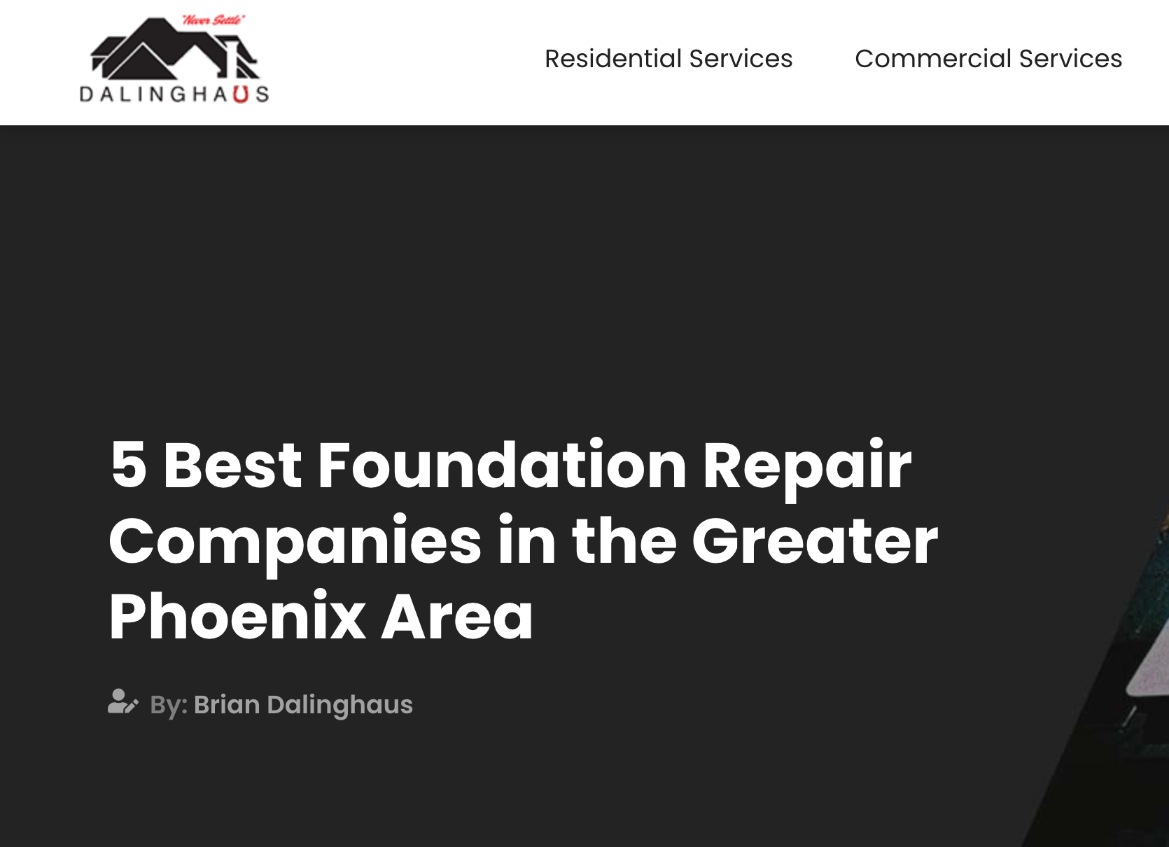
5. Real comparisons that help buyers feel informed
Installing a pool is a huge and expensive undertaking that is likely a purchase a customer will make only once in their life. So, how do they know they’re getting it right?
A fundamental question about your pool is the construction material. Should you go with concrete or fiberglass? Rather than just proclaiming that fiberglass pools are superior, read how River Pools in Virginia compares concrete and fiberglass, covering pros and cons of each one in this article:
Concrete pools vs. fiberglass pools: An honest comparison
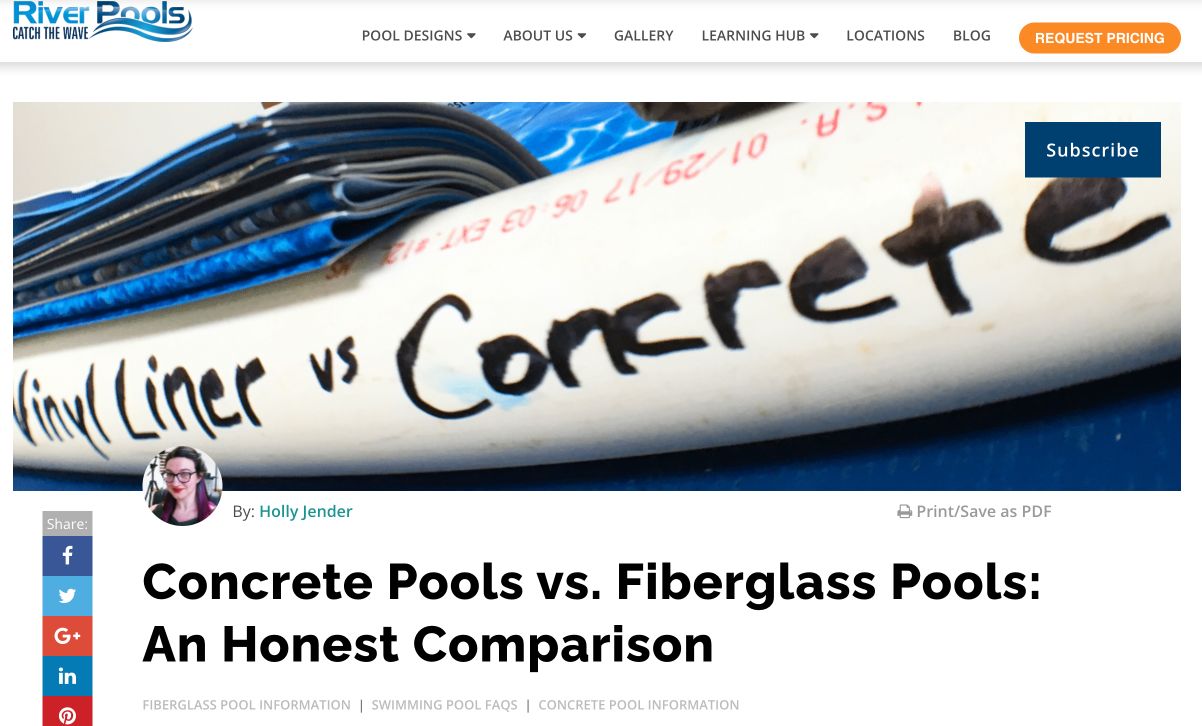
I also love how author Holly Jender addresses cost (again, it’s at the top of everyone’s mind) by breaking down 10-year ownership expenses in a handy diagram.
Now, see the same content covered in video. Again, we see high production values and a quick, entertaining format. As viewers, we know we can go to the article for more information, but the video promises an overview in two minutes — something explained at the onset.

Thinking beyond The Big 5
While The Big 5 are a wise place to start, the home improvement industry comes with its own unique questions that buyers everywhere want to know. These include a million “What is…” "How to..." and “Do I…” type questions.
As you plan your marketing strategy, pull some team members together and brainstorm some questions your buyers might type into search engines, such as:
- What type of foundation do I need for my addition?
- What is the best time of year to replace a roof?
- How do I keep my countertop looking new?
- Do I need a general contractor to handle my renovation?
- What is an epoxy liner for plumbing repair?
- Should I upgrade to geothermal heating?
- How do I fix my gutters?
- Do I need battery backup for my solar panels?
You get the idea.
Bundled content
Once you’ve built up a library of valuable content, you can focus on creating high-value "bundles" that can help bring in more leads.
It could be a guidebook to everything you need to know about metal roofs or a checklist for getting your window replacement project started. Site visitors could give you their contact information to download this kind of information in a free ebook. This way, you grow your audience and your mailing list.
Even better, this type of content gives your leads an easier conversion point. If they're not ready to schedule a sales call, they may feel comfortable downloading a free guide to kitchen remodeling.
'But do I need a new website?'
Often, businesses hoping to get started with digital marketing are wary that they’ll need a new website. In almost all cases, this is not true. You do not need a new website — you don’t even need a great website.
Unfortunately, there are many agencies out there that will gladly take your money and sell you a full site redesign that you don’t really need, telling you that it’s critical to your digital marketing ambitions.
Not so.
Even if your current website is a bit outdated, it probably has all the necessary functionality for success:
- Can you publish a blog?
- Can you interlink between blog articles or use a tag system to organize content?
- Can you use CTAs and a landing page to capture leads?
If your website can do these three things, you’re probably good to get started.
Just remember, your website is for your customers, not for you. Focus on their problems and challenges. Speak their language.
Potential customers will be wary of a sleek website if it doesn't provide value and build trust.
Sure, you may want a website upgrade down the line, but that shouldn't prevent you from producing helpful content today.
Getting started with your DIY marketing strategy
A marketing strategy is a detailed, evolving resource that will look different for each company. But you can get started with the basics provided above. If you’re ever unsure about what to cover, start with The Big 5. You know your customers are thinking about and Googling questions related to these topics right now.
Then, as a secondary source, go to your sales team. We recommend recurring meetings every two weeks between marketing and sales to find out what questions your sales reps are hearing from buyers. If certain questions keep coming up, make sure you address them thoroughly in your content.
Lastly, use resources available online to generate topic ideas as well. Semrush, AnswerThePublic, and Google Trends are all great resources to help you dive into what users are looking for.
Remember, if your customers are asking a question, you should be willing to answer it — and to do so openly on your website. This sort of transparency is key for developing trust and winning customers.
If you’re serious about using content marketing to grow your business, use the examples above for inspiration, and talk to us if you'd like to learn about how our trainers and coaches can help you take ownership of your digital sales and marketing to achieve your business goals.
Not ready to talk? Subscribe to our "Endless Customers" podcast. Every episode will give you real-world insights and tips for building trust and growing your business in the age of AI.


Order Your Copy of Marcus Sheridan's New Book — Endless Customers!
